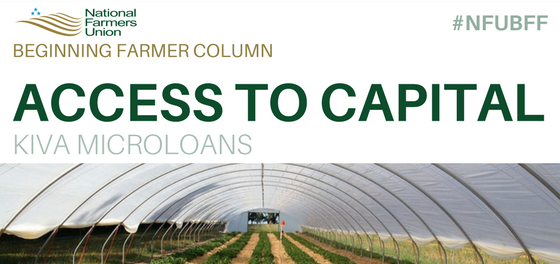Kiva Microloans for Beginning Farmers

By lending as little as $25 on Kiva, anyone can help a borrower start or grow a business, go to school, access clean energy or realize their potential. For some, it’s a matter of survival, for others it’s the fuel for a life-long ambition.
100% of every dollar you lend on Kiva goes to funding loans. Kiva covers costs primarily through optional donations, as well as through support from grants and sponsors.
Direct loans are an innovative and growing segment of Kiva’s loan portfolio. These loans are not administered by a Field Partner, which gives Kiva the ability to reach populations that even microlenders can’t or don’t serve. Direct loans are made through the digital payment system PayPal.
Direct loans were launched on Kiva in 2011 and are currently only available to borrowers in the U.S. as we continue to learn more about this model and the most effective ways to scale. Lenders should be aware that direct loans often involve a higher level of risk of default than those administered through Field Partners. The higher risk is due in part to less monitoring and followup for collection of repayments, as well as the nature of the businesses served. For example, many direct Kiva borrowers are startups that are in their first or second year of business.
Learn more about other resources for financing farm operations at https://www.beginningfarmers.org/funding-resources/






 Your Privacy Choices
Your Privacy Choices
Leave a comment